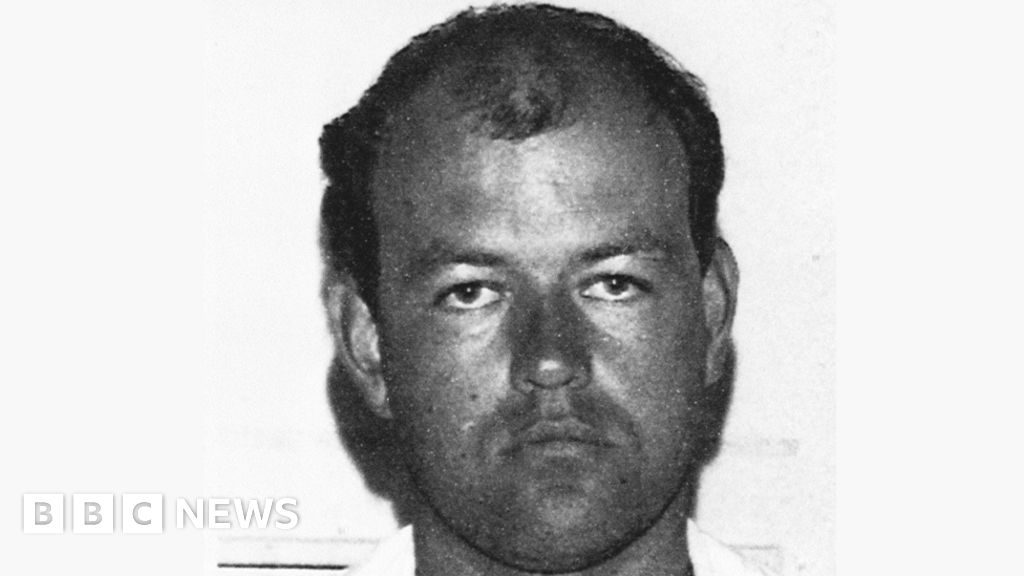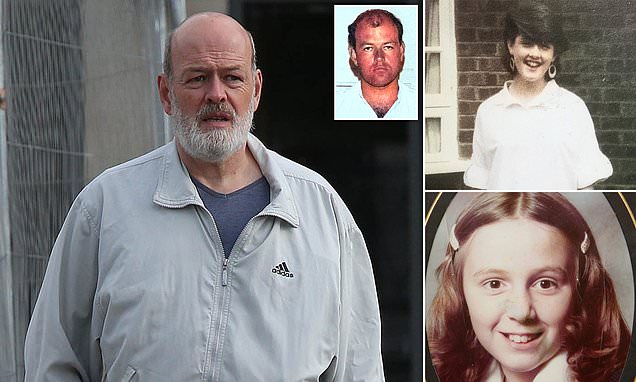PPEcel
cope and seethe
★★★★★
- Joined
- Oct 1, 2018
- Posts
- 29,087
News:

The crime:
In 1983, Colin Pitchfork savagely raped a 15-year-old femoid who was walking home alone before strangling her to death with her own scarf. In 1986 he also raped and murdered another 15-year-old. In between both murders, Pitchfork had also orally raped a 16-year-old at knifepoint in 1985, though he decided not to kill her.
This is how a pathologist described the 1986 killing:
In solving the cases, the police sought blood samples of over 5,000 men living in the area. He was the first person in the UK to be convicted of rape using DNA profiling; the forensic technique of reliably extracting DNA from semen left in a victim's vagina was still relatively new in the 1980s.
Pitchfork was not an incel; indeed, he was a normie father of two. During one of the murders, Pitchfork's infant son was sleeping in the back seat of his car, parked nearby.
The law:
Back in the 1980s and 1990s, the minimum term that a murderer must serve as part of a life sentence before being considered for parole ("tariff"), was allowed to be determined by the Home Secretary. Trial judges would, however, make sentencing recommendations. Justice Sir Philip Otton simply said Pitchfork "should only be released when the authorities are satisfied that he is no longer a danger to women. In any event, in view of the serious, callous and cunning conduct the actual length should be not less than 20 years." The Lord Chief Justice, Geoffrey Lane, recommended "25 years minimum, but from the point of view of the safety of the public I doubt if he should ever be released." The Home Secretary set a tariff of 30 years.
In 2002, in R v. Secretary of State for the Home Department Ex Parte Anderson, the House of Lords* ruled that the practice of allowing the Home Secretary to set the tariff for convicted murderers contravened Article 6 of the European Convention of Human Rights (ECHR). Tariffs for life sentences are now set by judges. This also led to the Criminal Justice Act 2003, which set recommended minimum tariffs. Had Pitchfork committed both murders today, he would almost certainly be sentenced to a "whole life order", i.e. life without parole, given that he had committed multiple murders of a sexual nature.
In 2009, Pitchfork appealed his sentence, and the Court of Appeal reduced the tariff to 28 years (see R v. Pitchfork). The Court also ruled that increasing Pitchfork's tariff to a whole life order under the terms of the 2003 Act would contravene Article 7 of the ECHR's prohibition of ex post facto, or retroactive, laws.
The outrage:
In 2021, the Parole Board determined that Pitchfork, now in his 60s, was a "model prisoner" and decided to release him, despite a motion by the Justice Secretary for them to reconsider. The Parole Board noted that "Legislation dictates that a panel's decision must be solely focused on what risk a prisoner may pose on release and whether that risk can be managed in the community." In other words, it is not the Board's place to impose their own sentencing recommendations over that of a judge.
The tabloids started to whine.

 www.dailymail.co.uk
www.dailymail.co.uk
Julie Bindel, a radical feminazi cow, had this to say on the Spectator:

 www.spectator.co.uk
www.spectator.co.uk
You know, I'm not one for rooting for normalfags, but I am indeed glad that he's managed to piss off other normalfags and femoids, all thanks to based lawcels.



________________________________________________________
*The Constitutional Reform Act 2005 created a Supreme Court of the United Kingdom that took over the functions of the Law Lords; the House of Lords no longer has appellate jurisdiction.

Colin Pitchfork: Double child killer's release confirmed
A judge-led review upholds a decision by the Parole Board to deem Colin Pitchfork safe for release.
www.bbc.co.uk
The crime:
In 1983, Colin Pitchfork savagely raped a 15-year-old femoid who was walking home alone before strangling her to death with her own scarf. In 1986 he also raped and murdered another 15-year-old. In between both murders, Pitchfork had also orally raped a 16-year-old at knifepoint in 1985, though he decided not to kill her.
This is how a pathologist described the 1986 killing:
When she was found, she was naked from the waist down. She had died of manual strangulation. It was clear that this was a particularly violent rape and probable buggery, and the girl herself had put up a considerable struggle. There was substantial bruising consistent with at least 2 punches to the side of her face, and another to the front. There were large grip marks bruises to her upper arms. The pathologist described a "brutal sexual attack". The perineum was substantially split. The anal ring was spread with three fissures. He concluded that the rape and strangulation were coexistent with and, because no bruising associated with the torn perineum was found, may well have continued after death.
In solving the cases, the police sought blood samples of over 5,000 men living in the area. He was the first person in the UK to be convicted of rape using DNA profiling; the forensic technique of reliably extracting DNA from semen left in a victim's vagina was still relatively new in the 1980s.
Pitchfork was not an incel; indeed, he was a normie father of two. During one of the murders, Pitchfork's infant son was sleeping in the back seat of his car, parked nearby.
The law:
Back in the 1980s and 1990s, the minimum term that a murderer must serve as part of a life sentence before being considered for parole ("tariff"), was allowed to be determined by the Home Secretary. Trial judges would, however, make sentencing recommendations. Justice Sir Philip Otton simply said Pitchfork "should only be released when the authorities are satisfied that he is no longer a danger to women. In any event, in view of the serious, callous and cunning conduct the actual length should be not less than 20 years." The Lord Chief Justice, Geoffrey Lane, recommended "25 years minimum, but from the point of view of the safety of the public I doubt if he should ever be released." The Home Secretary set a tariff of 30 years.
In 2002, in R v. Secretary of State for the Home Department Ex Parte Anderson, the House of Lords* ruled that the practice of allowing the Home Secretary to set the tariff for convicted murderers contravened Article 6 of the European Convention of Human Rights (ECHR). Tariffs for life sentences are now set by judges. This also led to the Criminal Justice Act 2003, which set recommended minimum tariffs. Had Pitchfork committed both murders today, he would almost certainly be sentenced to a "whole life order", i.e. life without parole, given that he had committed multiple murders of a sexual nature.
In 2009, Pitchfork appealed his sentence, and the Court of Appeal reduced the tariff to 28 years (see R v. Pitchfork). The Court also ruled that increasing Pitchfork's tariff to a whole life order under the terms of the 2003 Act would contravene Article 7 of the ECHR's prohibition of ex post facto, or retroactive, laws.
The outrage:
In 2021, the Parole Board determined that Pitchfork, now in his 60s, was a "model prisoner" and decided to release him, despite a motion by the Justice Secretary for them to reconsider. The Parole Board noted that "Legislation dictates that a panel's decision must be solely focused on what risk a prisoner may pose on release and whether that risk can be managed in the community." In other words, it is not the Board's place to impose their own sentencing recommendations over that of a judge.
The tabloids started to whine.

Colin Pitchfork victim's sister says he should be castrated
EXCLUSIVE: The sister of one of depraved Colin Pitchfork's murder victims today said he should be castrated and have paedophile tattooed on his face before he is freed.
Julie Bindel, a radical feminazi cow, had this to say on the Spectator:

Colin Pitchfork should die in jail
The Parole Board's decision to release child murderer and rapist Colin Pitchfork is a terrible mistake
You know, I'm not one for rooting for normalfags, but I am indeed glad that he's managed to piss off other normalfags and femoids, all thanks to based lawcels.
________________________________________________________
*The Constitutional Reform Act 2005 created a Supreme Court of the United Kingdom that took over the functions of the Law Lords; the House of Lords no longer has appellate jurisdiction.







